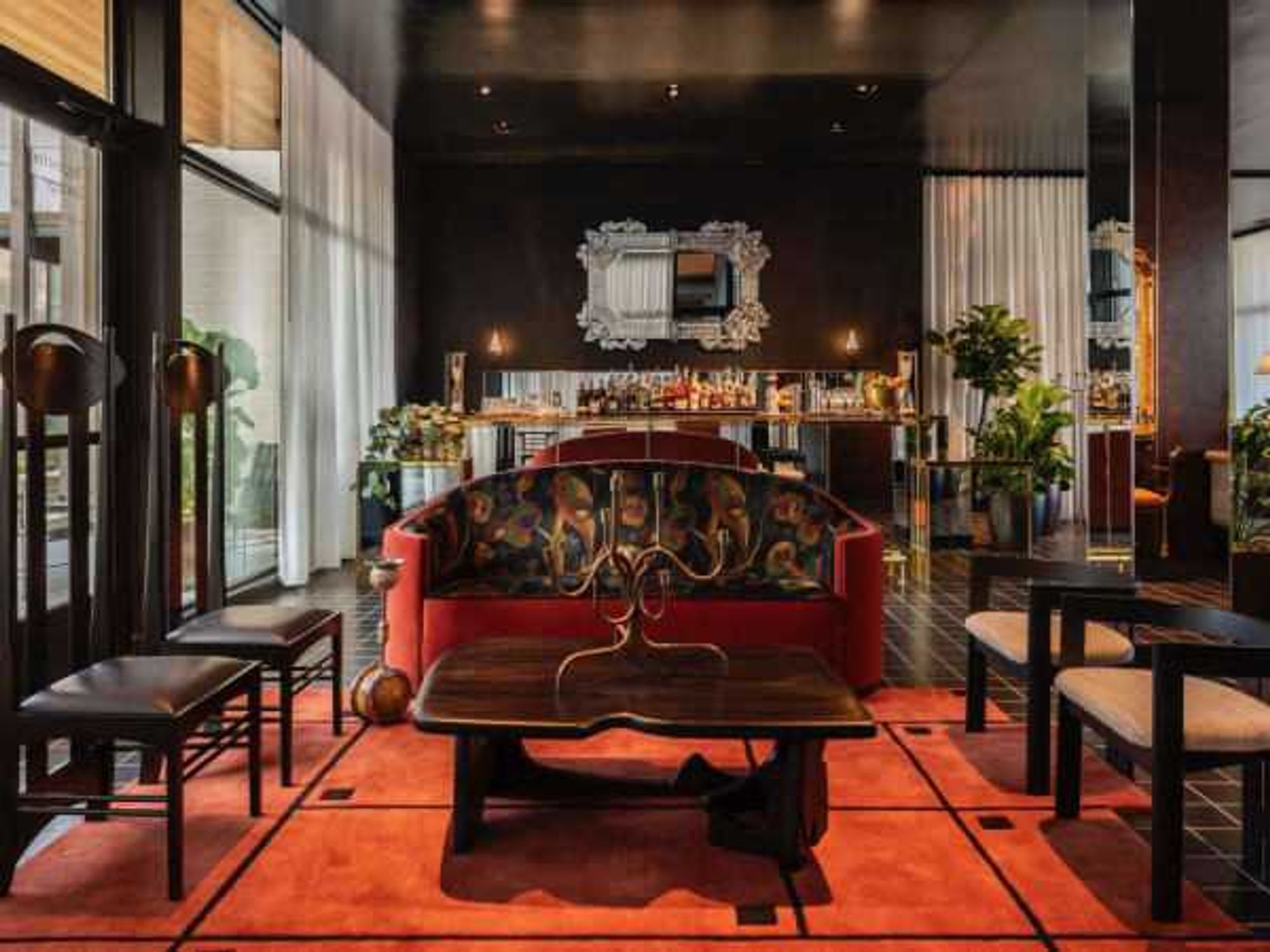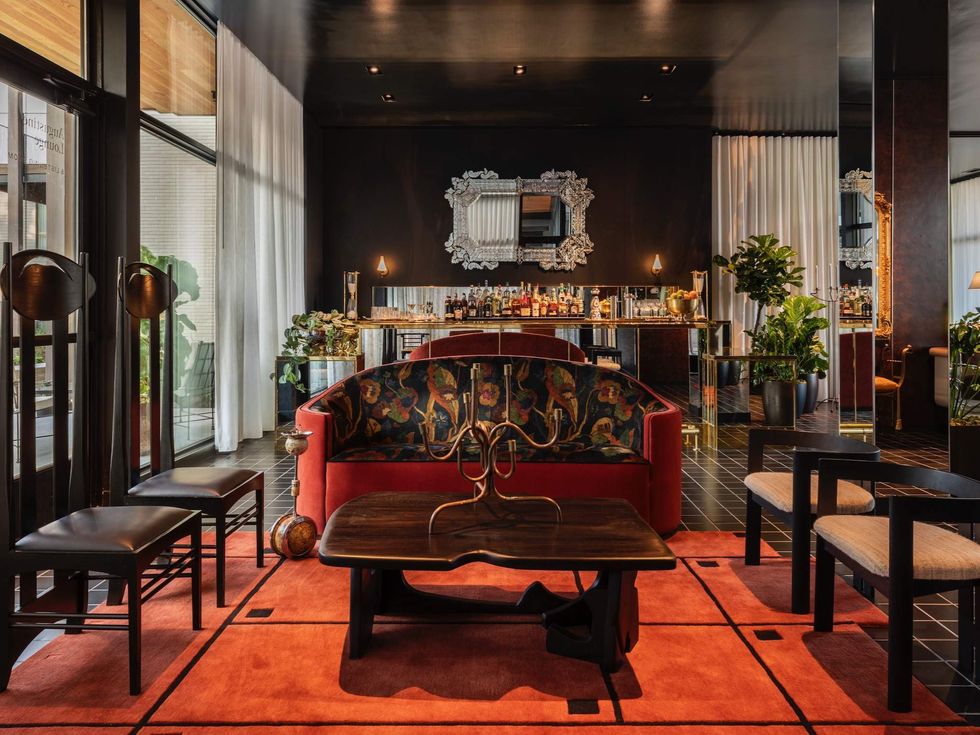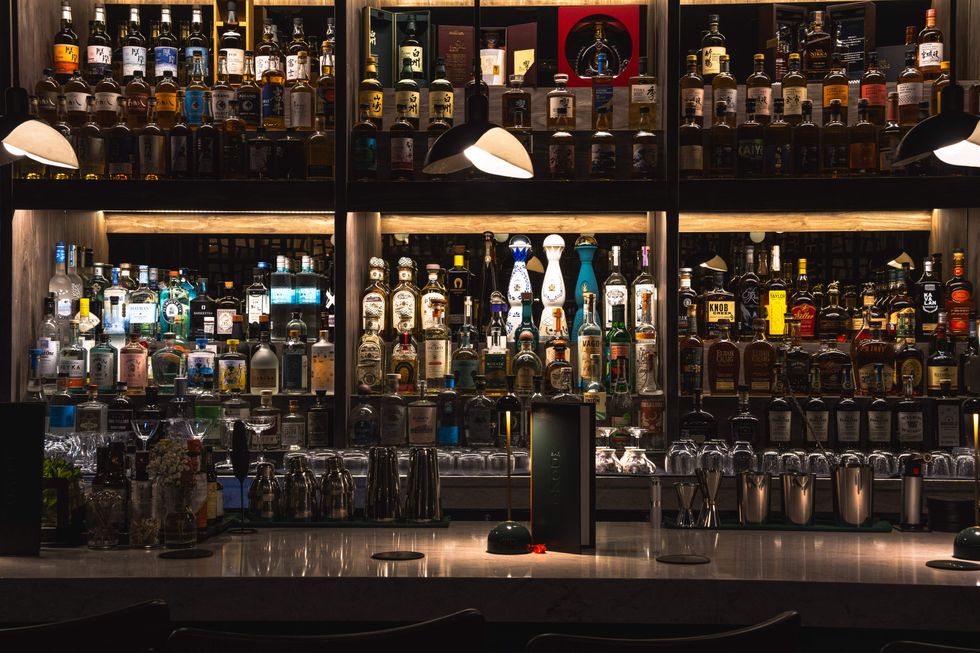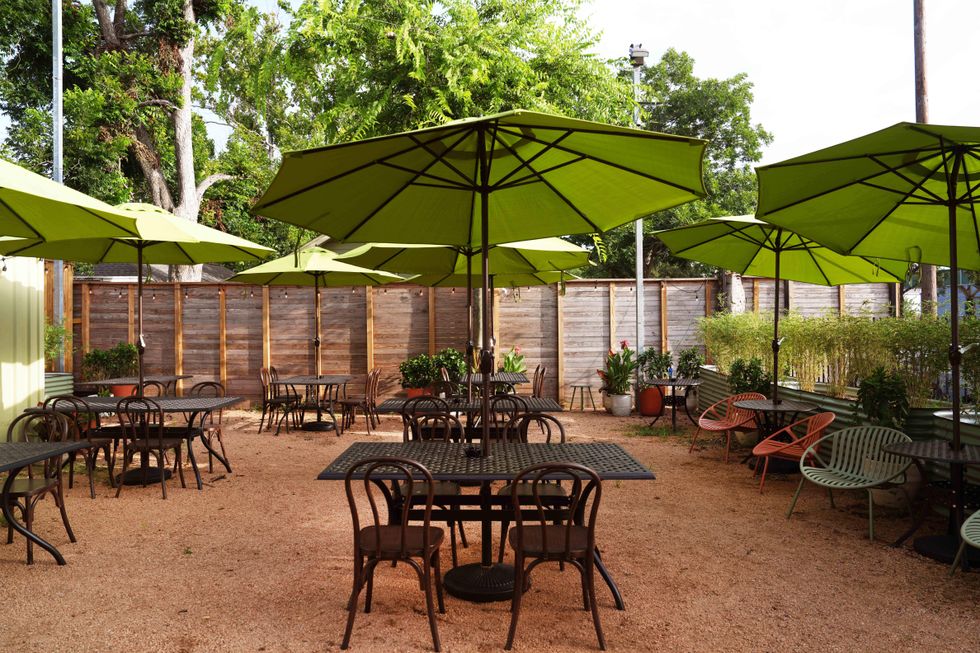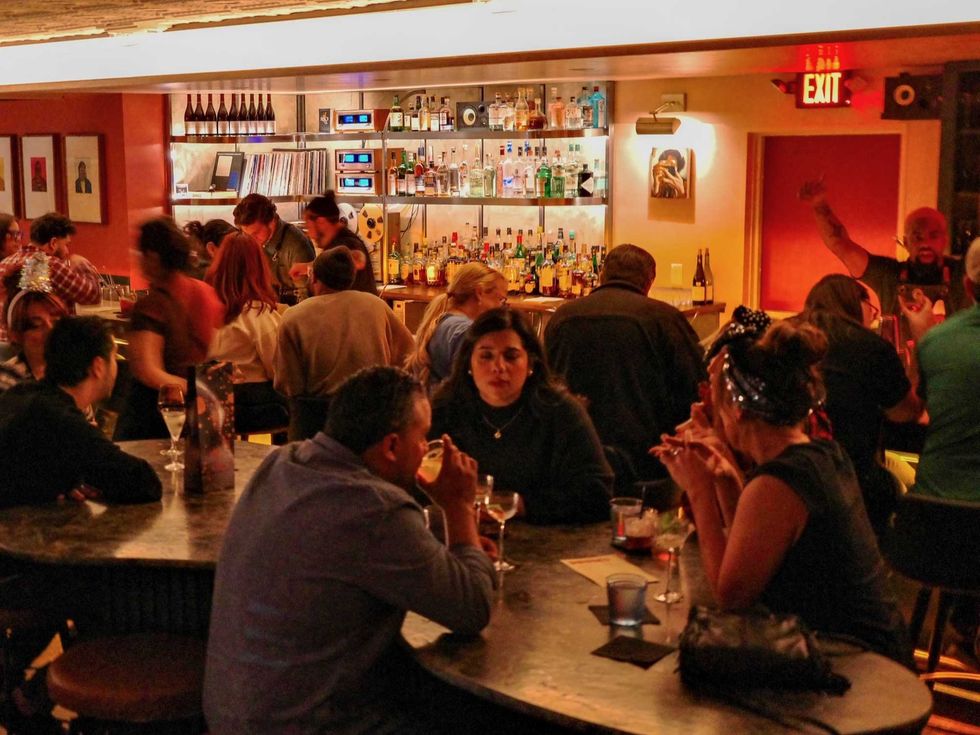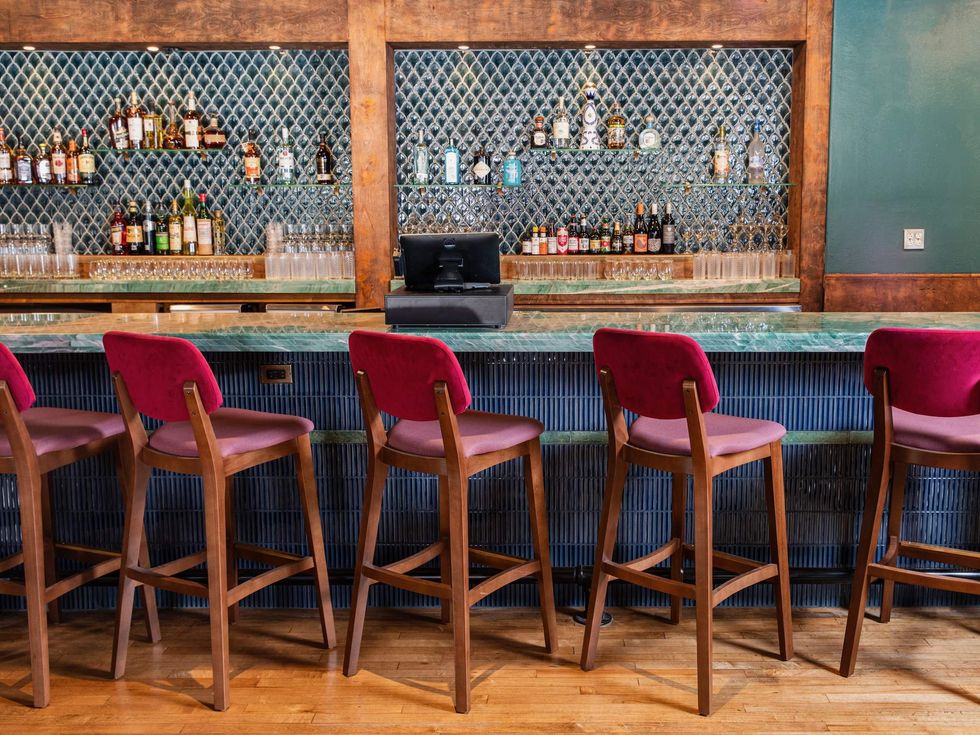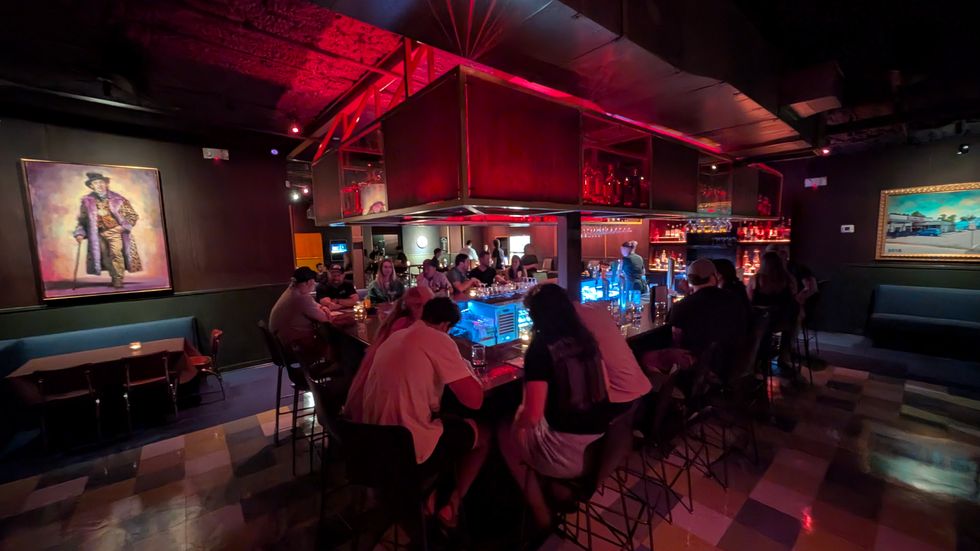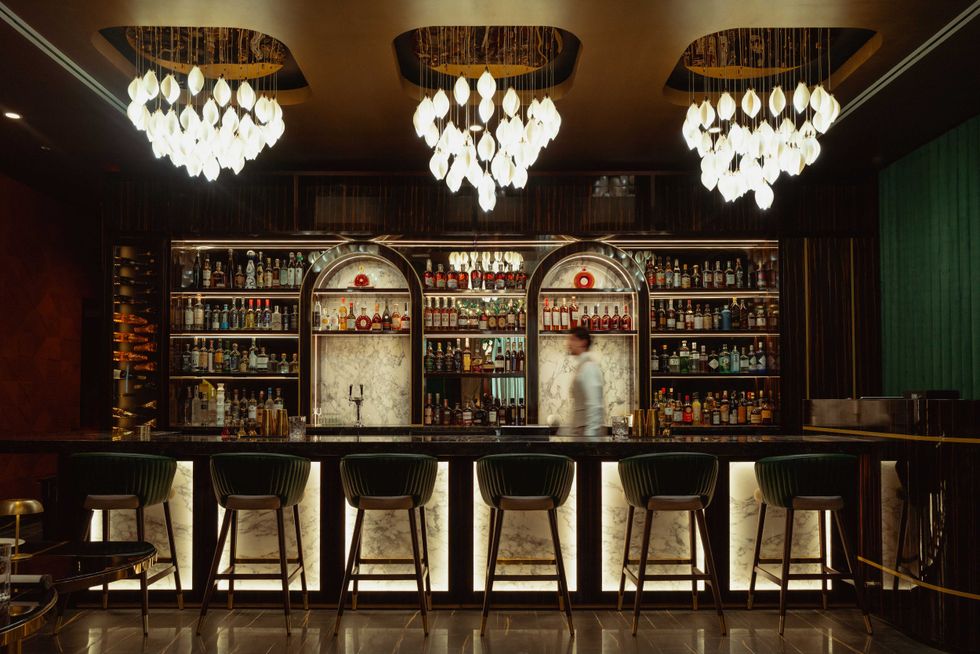Grocery Wars
A personable future: Disco Kroger gets rid of self checkout lanes
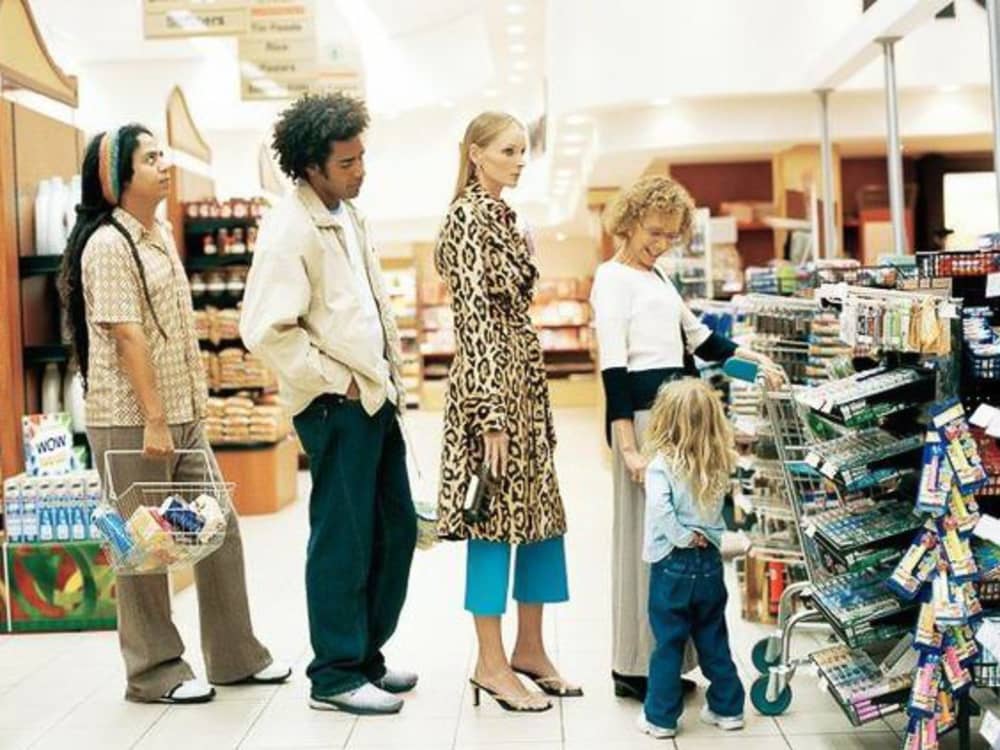 Where do you stand on the checkout line standoff?
Where do you stand on the checkout line standoff?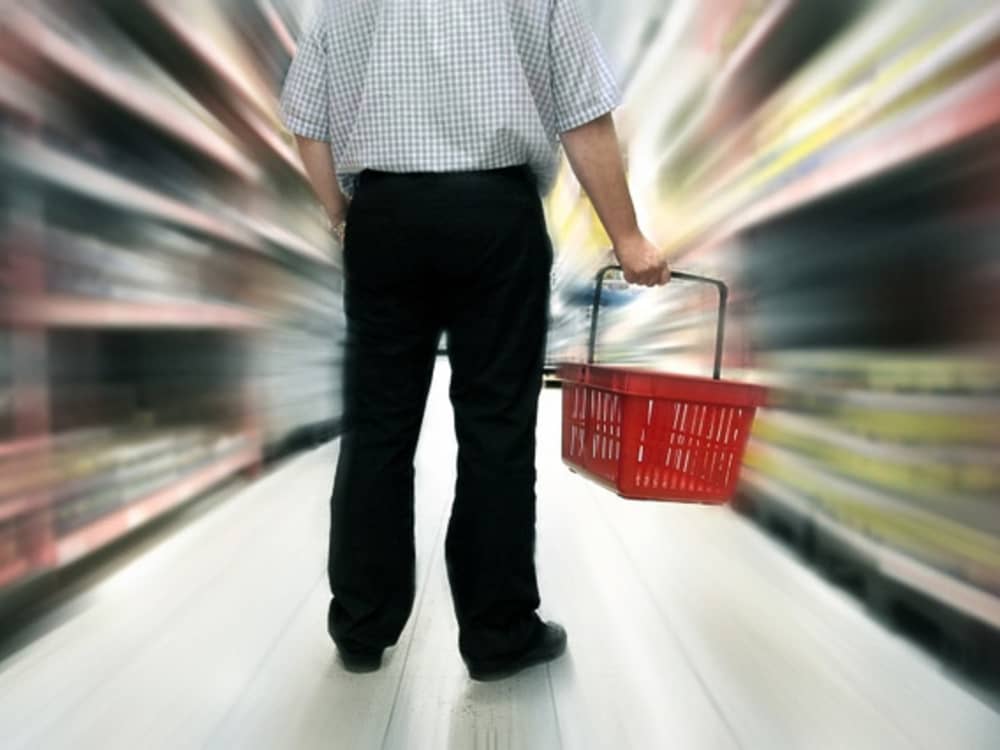 Shoppers are often caught in the vortex of grocery store checkout lanes.
Shoppers are often caught in the vortex of grocery store checkout lanes. Self checkout lanes are history at Disco Kroger.
Self checkout lanes are history at Disco Kroger.
As Montrose Boulevard's Disco Kroger amps up its aesthetic appeal with a full store makeover, shoppers have noted the disappearance of what has in the past decade emerged as a grocery store mainstay: Self checkout lanes.
In the place of automated scan stations, six manned express checkout stands have appeared, along with a speaking monitor mounted from the ceiling that directs shoppers to the next open cashier.
The express lanes are being dubbed as "Metro" registers, adding an urbane, cosmopolitan appeal to the purchasing experience. Explained Kroger's Kristal Howard in an email, the Metro registers are "among the latest technology in the industry," with the ability to check out customers three-times faster than standard self-check lanes.
The express lanes are being dubbed as "Metro" registers, adding an urbane, cosmopolitan appeal to the purchasing experience.
The Montrose store was selected as a pilot site within Kroger's Southwest Division to feature Metro registers due to the large number of customers who prefer express checkout. According to Howard, the average wait time is between five and 20 seconds.
Idle moments aside, the days of sassy computer small talk and clandestinely buying large organic avocados for the price of bananas are over.
The process of paying for groceries may seem mundane, but the advent of new technology brings in a slew of unexpected issues. Since the arrival of self checkout machines in 1992 by Montreal's Optimal Robitics at a Price Chopper Supermarket in Clifton Park, N.Y., the phenomenon has displaced countless aspiring grocery cashiers. President Obama spoke out on the problem in a June interview with Ann Curry on the Today show, during which he stated,
There are some structural issues with our economy where a lot of businesses have learned to become much more efficient with a lot fewer workers. You see it when you go to a bank and you use an ATM, you don't go to a bank teller, or you go to the airport and you're using a kiosk instead of checking in at the gate. All these things have created changes in the economy, and what we have to do . . . is identifying where the jobs for the future are going to be."
Then there's the matter of thirsty minors trying to sneak six packs and bottles of André through self checkout stations. The politics of self checkout lanes and underage drinking are unfolding in California, where the United Food and Commercial Workers International Union is backing a bill by Assemblywoman Fiona Ma (D-San Francisco) that requires alcohol be purchased at traditional stands. Explains an article in the LA Times, the machines fail to lock up in a small percentage of cases. To avoid drawing the attention of lane monitors, naughty customers can override warnings by instantly scanning another item or swiping a credit card.
Other forms of misbehavior at self checkout lanes, such as shoplifting, are prevented by networks of integrated cameras, scales, security tags and, in some cases, laser analysis of the dimensions of products. However, studies indicate that most grocery store theft is conducted by employees.
For many, the trials of maneuvering around the automated cashiers became a source of grocery store trauma. Older customers found the technology dehumanizing, while others missed the opportunity to disconnect while waiting in a regular line, catching up on Us Weekly headlines and eyeing king size candy bars.
And then there's the sheer embarrassment that sometimes occurs when confronted with an unruly machine and facing the wrath of shoppers waiting in line behind you, making the "Figure it out, stupid," eye.
Explains Bjorn Weber of retail analysts Planet Retail to the BBC, "People perceive self-service checkouts to be quicker but that's because they are actually doing the work. In reality they take longer than someone serving you, but it's annoying for the shopper to stand around waiting." Studies by IHL Group, a Tennessee-based research firm, found that less than half, 41 percent, of consumers prefer self-service machines.
As Kroger takes a stand against automated stands, some retailers are plowing forward with enhanced technology. California's Fresh & Easy grocery chain is entirely self-service, and the number of self checkout units is estimated to rocket to 430,000 worldwide by 2014. Mobile self checkout has emerged as the next answer to grocery efficiency, in which customers will download a smart phone app that allows them to scan barcodes and input credit card information.
